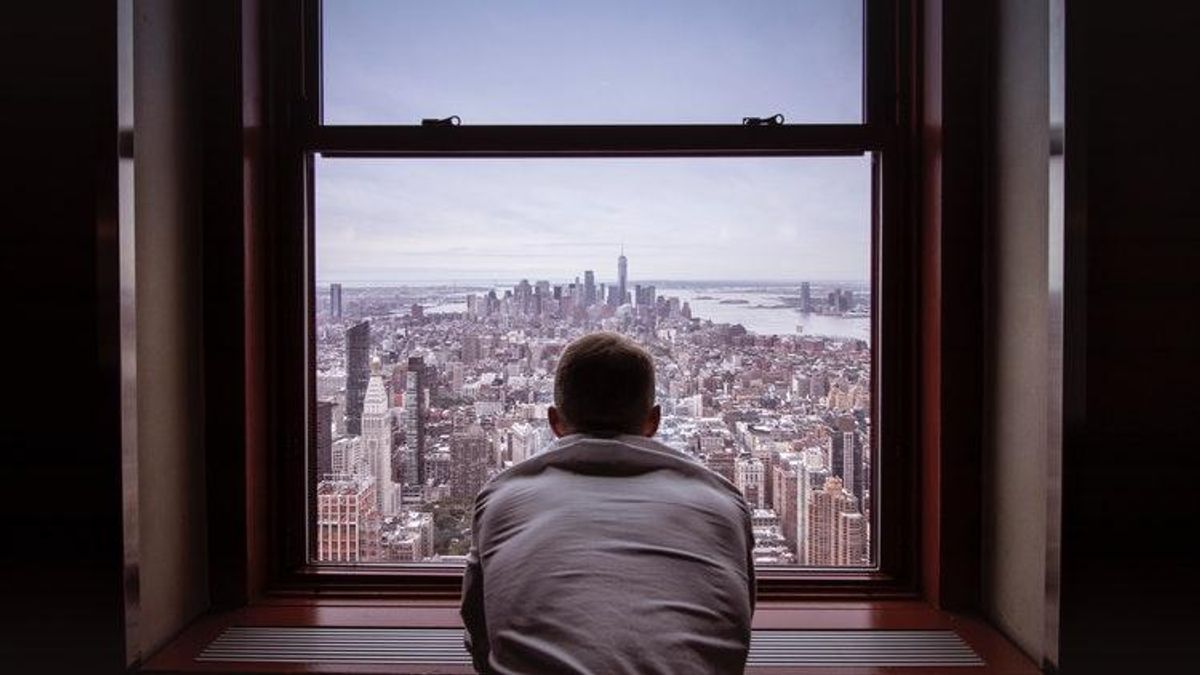It’s been a rough year and a half, hasn’t it? In so many ways, I can’t begin to count them. I suspect it may be the same for you. None of us were prepared to cope during a global pandemic. As a therapist, one of the themes that has emerged in my conversations with my clients can be described broadly with one word: anxiety. Probably related to what you’ve been anxious about. Adjusting to working at home, staying involved and productive. Keeping your home-schooled kids involved in their education. Staying safe and keeping your loved ones safe. And of course, worrying about whether we would have a vaccine or not.
Well, now we have a vaccine. Resulting in a sigh of relief, and new things to worry about. Like how soon enough people in our communities will also be vaccinated. How soon we can get back to some kind of normal. And whether we are going too slow or too fast in getting to normal. Inevitably, this has led to more concerns about how we should proceed in this new chapter we are entering. And you guessed it, more anxiety.
If you’re living with HIV, you may have had a lot of concerns about exposure during this pandemic. And these concerns may still be hanging around.
A family member just texted me and said, “Our mask mandate ended everywhere. I don’t think I’m ready for this.” On the other hand, I am also talking with friends and clients how awhile back started jettisoning their masks when walking down the street – nasty looks be damned! – and chomping at the bit to dive back into life as we once knew it. If you’re feeling anxious about the when and how of reentry, you’re not alone.
And here are four tips to help you cope:
Allow yourself to proceed at your own pace. My response is always the same. Give yourself permission to proceed at your own pace, step by step, according to your own comfort level. We can’t control the decisions that other people make. But if you feel the need to tip-toe back into the new world, if you need to wear your mask on the street or in the grocery store, even if you don’t have to anymore, then do so. If you aren’t ready to eat in a restaurant, you don’t have to force yourself. We’re all a little, or a lot, traumatized by the events of the past year, the upheaval wrought by the COVID-19 pandemic. We’re all going to be recovering emotionally at our own individual pace. It’s okay to take it as slowly as you need to. What’s important is protecting your peace of mind. Baby steps.
Remember that patience continues to be a virtue. On the other hand… You might also be feeling anxious to get back to normal. If you’re in the enough-of-this-let’s-get-back-to-normal crowd, you might be like the Little League kid desperate to get into the game: “Now coach?” Yes, now. Well, sort of now. Back to what I said about finally admitting our frustration with all of these restrictions and isolation. But at the risk of bursting your bubble, here are a few things to keep in mind. We still have summer and fall ahead of us, with restrictions gradually being reduced. Most companies are talking about the fall as the time when they will consider inviting employees back to the office. States are still watching the numbers closely. The pandemic rages on globally, which places us all at elevated risk regardless of how normal life appears In our own communities. Humans don’t do well with uncertainty, as we have learned over the past year. But life is still uncertain.
Keep your mind open. Thoughts about what life might look like going forward can inevitably lead to more anxiety. Without concrete information, your mind tries to do you a big favor by giving you a story. Unfortunately, that story is generally inaccurate, based on unrealistic expectations, or a worst case scenario; either way, a recipe for more anxiety. One of the biggest lessons of the pandemic has been that we are not in control. The future will provide us all with another opportunity to learn to live with uncertainty. Some of what you have been missing during the pandemic may return just as you remember it. Other aspects of the way we lived may be modified in ways we never thought we would see. What we do know is that life as we knew it will probably never be quite the same. So keep your mind open. Be prepared to know when you know, and to adjust accordingly. Your foundation is intact, you’ve proven to yourself how resilient you are. Life is always interesting and surprising if you stay open to what’s possible.
Pay attention to your self-talk. We human beings are in a constant dialogue with ourselves. Our mind just can’t help itself from constantly throwing thoughts at us. We evaluate, we judge, we label, we review, we plan. And we worry. If you find yourself constantly overwhelmed by anxious thoughts, you are not alone. The pandemic has for many of us unleashed an endless supply of anxious thoughts. Two strategies to cope with anxious thoughts: First, let the thought go. Don’t indulge it. And if that doesn’t work, talk back to your anxious thought. Drag it into the courtroom and ask it to present the evidence for its existence. With no evidence, send it on its way. Replace anxious thoughts with some encouragement. “I’ve got a strong support system, I’m not alone.” “I made it this far, I’ll face what’s ahead.” “Sure, I may not like all the changes ahead. But life is always full of great surprises.” The point here is to not follow every anxious thought down the rabbit hole. You can’t control your thoughts, but you can control whether or not you indulge them. While you’re at it, find something every day to be grateful for – that’s a great antidote for anxious thoughts.
Reentry ahead! Keep your chin up! A new world awaits you!
Gary McClain, PhD, is a therapist, patient advocate, and author in New York City, who specializes in working with individuals diagnosed with chronic and catastrophic medical conditions, their caregivers, and professionals. He maintains a website, www.JustGotDiagnosed.com.













































































